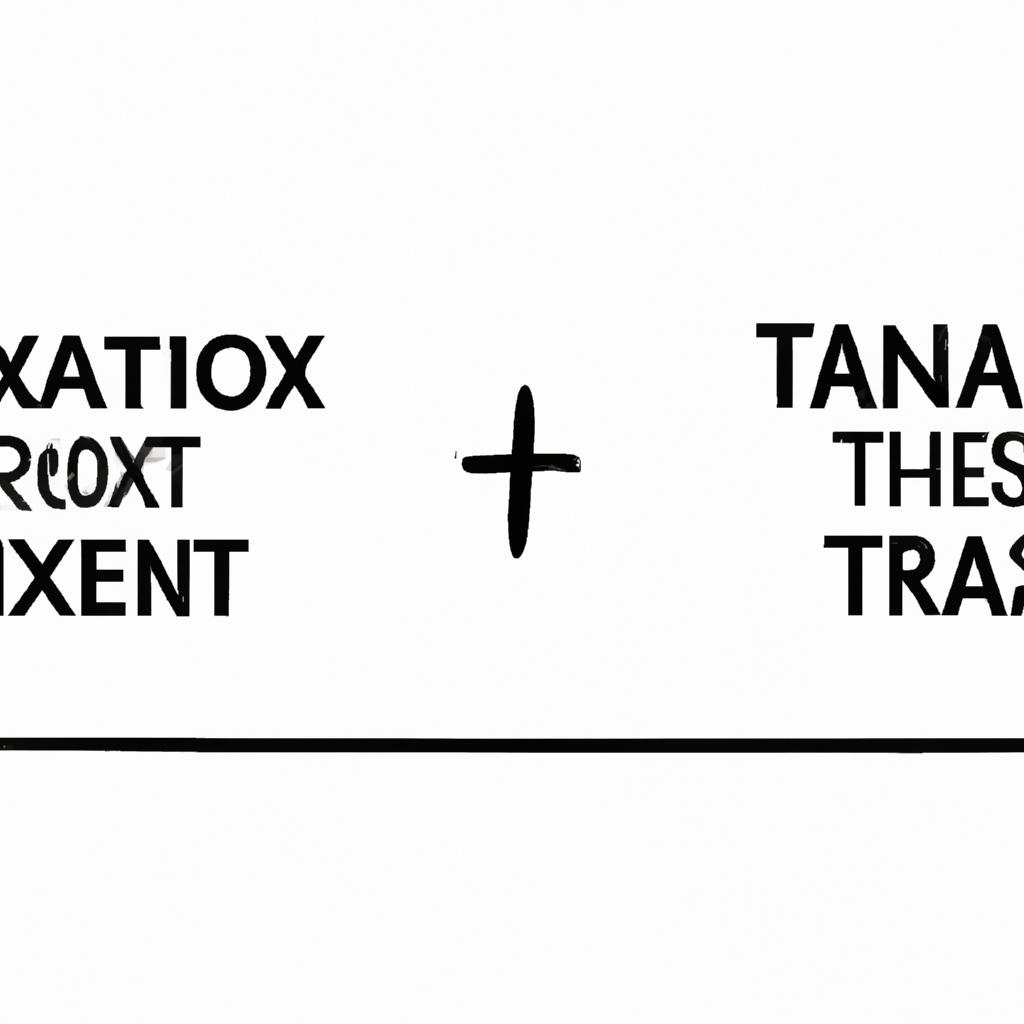In the intricate landscape of estate planning, navigating the nuances between grantor and grantee trusts is essential to crafting a comprehensive and effective strategy for the future. As experienced practitioners in the field of trusts and estates, the team at Morgan Legal Group in New York City is well-versed in the intricacies of these two distinct trust structures. In this article, we delve into the differences between grantor and grantee trusts, shedding light on their respective roles and implications in the realm of estate planning. Join us as we unravel the complexities of trust law and empower you to make informed decisions about your financial legacy.
Understanding the Key Differences Between Grantor and Grantee Trusts
Grantor vs Grantee Trust
When it comes to setting up a trust, it’s important to understand the key differences between a grantor trust and a grantee trust. A grantor trust, also known as a living trust, is created by an individual (the grantor) for their own benefit during their lifetime. The grantor retains control over the trust assets and can make changes or revoke the trust if they wish. On the other hand, a grantee trust is established for the benefit of someone other than the grantor, such as a spouse, child, or charity.
- Control: In a grantor trust, the grantor maintains control over the assets and can make changes as needed. In a grantee trust, the trustee is responsible for managing the assets for the benefit of the named beneficiaries.
- Tax Implications: Grantor trusts are typically treated as disregarded entities for tax purposes, with income and deductions reported on the grantor’s personal tax return. Grantee trusts, on the other hand, are treated as separate taxable entities.

Comparing the Impact on Taxation: Grantor vs Grantee Trusts
When it comes to estate planning, choosing between a grantor trust and a grantee trust can have significant implications on taxation. Both types of trusts offer unique benefits and drawbacks, depending on your individual circumstances. Understanding the differences in taxation between grantor and grantee trusts is essential for making informed decisions about your estate plan.
With a grantor trust, the grantor retains control over the assets placed in the trust and is responsible for paying the income taxes generated by those assets. On the other hand, a grantee trust transfers control and liability for taxes to the beneficiary. This fundamental distinction can have far-reaching consequences for how your estate is taxed during your lifetime and after your passing. It is crucial to speak with an experienced estate planning attorney to determine which type of trust aligns best with your financial goals and tax planning objectives.

Strategic Considerations for Choosing Between Grantor and Grantee Trusts
When deciding between grantor and grantee trusts, there are several strategic considerations to keep in mind. Grantor trusts, where the grantor retains certain powers and benefits, offer flexibility and control over the trust assets. On the other hand, grantee trusts, where the beneficiaries have more control, may provide asset protection and tax benefits. Here are some key factors to consider:
- Tax Implications: Grantor trusts are typically taxed at the grantor’s individual tax rate, while grantee trusts are taxed at the trust’s tax rate. Depending on your financial situation, one option may be more tax-efficient than the other.
- Asset Protection: Grantee trusts offer greater protection from creditors, as the assets are legally owned by the trust rather than the grantor. If asset protection is a priority, a grantee trust may be the better choice.

Maximizing the Benefits of Trusts in Estate Planning with Morgan Legal Group
When it comes to estate planning, trusts are a valuable tool that can help individuals protect their assets and provide for their loved ones in the future. At Morgan Legal Group, we specialize in helping our clients maximize the benefits of trusts in their estate plans. One important decision that individuals must make when setting up a trust is whether to establish a grantor trust or a grantee trust.
A grantor trust, also known as a living trust, is created and funded by the individual who establishes the trust. The grantor retains control over the trust assets during their lifetime and can make changes to the trust as they see fit. On the other hand, a grantee trust, also known as an irrevocable trust, is created for the benefit of someone other than the grantor. Once the trust is established, the grantor typically cannot make changes to the trust or access the trust assets. Each type of trust has its own advantages and disadvantages, and our experienced attorneys at Morgan Legal Group can help you determine which type of trust is best suited to your individual needs and goals.
Q&A
Q: What is a grantor trust?
A: A grantor trust is a trust where the person creating the trust (the grantor) retains certain control and benefits over the assets placed within the trust.
Q: What is a grantee trust?
A: A grantee trust is a trust where the person receiving the benefits of the trust (the grantee) has no control over the trust assets and is simply a beneficiary of the trust.
Q: What are the main differences between a grantor trust and a grantee trust?
A: The main difference between a grantor trust and a grantee trust is the level of control and benefits retained by the grantor. In a grantor trust, the grantor retains control over the assets and may receive benefits from the trust, while in a grantee trust, the grantee has no control over the assets and is simply a beneficiary.
Q: How are grantor trusts typically used?
A: Grantor trusts are often used for estate planning purposes, as they allow the grantor to transfer assets to beneficiaries while still maintaining some level of control and flexibility over how the assets are managed and distributed.
Q: What are some advantages of grantor trusts?
A: Some advantages of grantor trusts include potential tax benefits, asset protection, and the ability for the grantor to customize the trust to meet their specific needs and goals.
Q: How do grantee trusts differ in terms of taxation?
A: Grantee trusts are typically taxed as separate entities, with any income or gains generated by the trust being taxed at the trust level. In contrast, grantor trusts are usually taxed at the individual level, with any income or gains flowing through to the grantor’s tax return.
In Summary
In conclusion, understanding the differences between grantor and grantee trusts is essential for effective estate planning and asset protection. Whether you are the one establishing the trust or the one benefiting from it, knowing your role and responsibilities can help you make informed decisions for the future. By considering the unique features and advantages of each type of trust, you can create a plan that aligns with your individual needs and goals. Ultimately, the choice between a grantor and grantee trust will depend on your specific circumstances and preferences. So, take the time to carefully evaluate your options and seek professional advice to ensure that your assets are properly managed and protected for generations to come. Thank you for reading!
 Grantor vs Grantee Trust: Understanding the Differences and Choosing the Right Option
Grantor vs Grantee Trust: Understanding the Differences and Choosing the Right Option
When it comes to estate planning and managing assets, trust is a commonly used term. A trust is a legal arrangement where a trustee, who can be an individual or a financial institution, manages the assets on behalf of a beneficiary or beneficiaries. There are different types of trusts, and one of the key distinctions is between grantor and grantee trusts. While both serve similar purposes of managing assets, they differ in terms of control, tax implications, and benefits. In this article, we will delve into the details of grantor vs grantee trust and help you understand which option may be more suitable for your specific needs.
What is a Grantor Trust?
A grantor trust is a type of trust where the grantor, or the person who creates the trust, retains control over the assets and has the ability to revoke or amend the trust. The grantor can also serve as the trustee, meaning they have full control over how the trust assets are managed and distributed. This type of trust is commonly used for estate planning purposes, as it allows the grantor to transfer assets to beneficiaries while still maintaining control over them.
What is a Grantee Trust?
In contrast, a grantee trust, also known as an irrevocable trust, is a type of trust where the grantor gives up all control over the assets and cannot make changes to the terms of the trust once it is created. In this type of trust, the trustee takes on full responsibility for managing and distributing the trust assets according to the terms set by the grantor. A grantee trust is often used for tax planning and asset protection purposes.
Key Differences between Grantor and Grantee Trusts
1. Control Over Trust Assets
The main difference between grantor and grantee trusts is the level of control the grantor retains over the assets. In a grantor trust, the grantor can make changes to the trust and even serve as the trustee, meaning they have full control over the assets. On the other hand, in a grantee trust, the grantor gives up all control and the trustee manages the assets on behalf of the beneficiaries.
2. Tax Implications
Another key difference between these two types of trust is the tax implications. In a grantor trust, the grantor is responsible for paying taxes on any income generated by the trust assets. This means that the trust assets are still considered part of the grantor’s estate and can be subject to estate taxes. In contrast, in a grantee trust, the trustee is responsible for paying taxes on any income generated by the trust assets. This can offer tax benefits to the grantor and beneficiaries, as the assets are no longer considered part of the grantor’s estate.
3. Asset Protection
For those looking for asset protection benefits, a grantee trust is often the preferred option. Since the trust assets are not owned by the grantor, they are not subject to any potential legal claims or creditors. This can be particularly beneficial for those involved in high-risk professions or facing potential lawsuits.
4. Estate Planning Goals
Both grantor and grantee trusts can be used for estate planning purposes, but they serve different goals. A grantor trust is typically used to transfer assets to beneficiaries while still maintaining control and providing for potential changes in the future. On the other hand, a grantee trust is designed for those who want to ensure that their assets are protected and managed according to their wishes without any interference or changes.
Which Trust is Right for You?
As with any legal and financial decisions, the choice between a grantor and grantee trust depends on your specific goals and needs. If you want to maintain control over your assets and have the ability to make changes in the future, then a grantor trust may be the right option for you. However, if asset protection and tax benefits are your top priorities, then a grantee trust may be more suitable.
Benefits and Practical Tips
– A grantor trust is a flexible option that allows the grantor to make changes or even revoke the trust if needed.
– A grantee trust provides asset protection and tax benefits.
– Seeking the advice of a trusted estate planning attorney is crucial in determining which type of trust is suitable for your specific needs and goals.
– Make sure to review and regularly update your trust documents to reflect any changes in your circumstances or wishes.
Case Studies
To better illustrate the key differences between grantor and grantee trusts, let’s take a look at the following case studies.
Case Study 1: John is a successful business owner who wants to protect his assets from potential lawsuits. He decides to create a grantee trust, giving up control over his assets and choosing a trusted financial institution as the trustee. As a result, his assets are shielded from any legal claims, and he can enjoy tax benefits as well.
Case Study 2: Sarah is a retiree who wants to ensure that her assets are distributed according to her wishes after her passing. She creates a grantor trust where she serves as the trustee, allowing her to maintain control over her assets and make changes if needed. She also names her grandchildren as beneficiaries, with specific instructions on how the assets should be distributed among them.
In Conclusion
In summary, both grantor and grantee trusts have their unique features and benefits. The key is to determine your specific goals and needs and choose the right type of trust that aligns with them. Seeking the guidance of a knowledgeable attorney can help you make an informed decision and ensure that your assets are managed and distributed according to your wishes. Remember to regularly review and update your trust documents to reflect any changes and keep your estate plan up-to-date.
First-Hand Experience
In my experience as an estate planning attorney, I have seen the benefits and drawbacks of both grantor and grantee trusts. It is essential to carefully consider your goals and the potential implications before making a decision. While a grantor trust offers more control and flexibility, a grantee trust can provide tax benefits and asset protection. Ultimately, the right choice depends on your individual circumstances and objectives. Don’t hesitate to seek professional assistance in navigating this complex area of estate planning.


